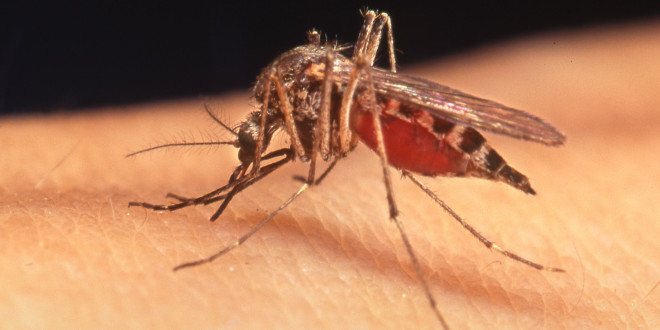DANVILLE—Health officials continue to encourage Hendricks County residents to take steps to protect themselves from West Nile virus and other mosquito-borne diseases after a sample of mosquitoes in Hendricks County tested positive for the virus.
Throughout the season, the Hendricks County Health Department (HCHD) and the Indiana Department of Health have collected mosquitoes and investigated the potential for mosquito-borne disease transmission in the county. In addition, HCHD has worked to treat and minimize potential breeding sites. Yearly surveillance data in Indiana reveals that West Nile virus infections are most likely to occur in the hotter months of July-October.
The majority of West Nile virus symptoms appear within 2-14 days of a bite from an infected mosquito. These symptoms may include developing a fever, headaches, body aches, joint pains, vomiting, diarrhea, or rash, with some lingering fatigue and weakness.
HCHD health officials would like to encourage the Hendricks County community to be especially mindful of taking proper precautions to protect themselves and their loved ones.
Individuals may practice preventative measures to reduce the risk of infection by doing the following:
- Avoid places where mosquitoes are present in high numbers.
- Apply insect repellent containing DEET, Picaridin, IR3535, Para-menthane-diol (PMD), 2-undecanone, or oil of lemon eucalyptus (OLE) to clothes and exposed skin.
- When possible, wear pants and long sleeves, especially if walking in wooded or marshy areas.
- Install or repair screens on windows and doors to keep mosquitoes out of the home.
Individuals may also take the following Centers for Disease Control and Prevention (CDC) precautions to control mosquitoes outside of the home:
- Once a week, empty and scrub, turn over, cover, or throw out items that could collect water outdoors, such as tires, buckets, planters, toys, pools, birdbaths, flowerpots and trash containers.
- Tightly cover water storage containers (buckets, cisterns, rain barrels) so that mosquitoes cannot get inside to lay eggs.
- For containers without lids, use wire mesh with holes smaller than an adult mosquito.
- If you have a septic tank, repair any cracks or gaps. Cover open vents or plumbing pipes. Use wire mesh with holes smaller than an adult mosquito.
- Use larvicides to treat large bodies of water that will not be used for drinking and cannot be covered or dumped out.
If you begin experiencing any of the symptoms previously listed after receiving a mosquito bite, please contact your healthcare provider immediately. For more information about mosquito safety, please visit the Hendricks County Health Department’s website at bit.ly/HCVECTORCONTROL. Information about West Nile virus and mosquito activity in Indiana may respectively be found at https://www.in.gov/health/erc/zoonotic-and-vectorborne-epidemiology-entomology/diseases/west-nile-virus/.
To learn more about Mosquito Control, visit https://www.cdc.gov/mosquitoes/mosquito-control/index.html.
 WYRZ.org 98.9 WYRZ – The Voice of Hendricks County
WYRZ.org 98.9 WYRZ – The Voice of Hendricks County





